6 start with W start with W
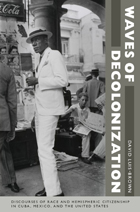
Luis-Brown traces unfolding narratives of decolonization across a broad range of texts. He explores how Martí and Du Bois, known as the founders of Cuban and black nationalisms, came to develop anticolonial discourses that cut across racial and national divides. He illuminates how cross-fertilizations among the Harlem Renaissance, Mexican indigenismo, and Cuban negrismo in the 1920s contributed to broader efforts to keep pace with transformations unleashed by ongoing conflicts over imperialism, and he considers how those transformations were explored in novels by McKay of Jamaica, Jesús Masdeu of Cuba, and Miguel Ángel Menéndez of Mexico. Focusing on ethnography’s uneven contributions to decolonization, he investigates how Manuel Gamio, a Mexican anthropologist, and Zora Neale Hurston each adapted metropolitan social science for use by writers from the racialized periphery.
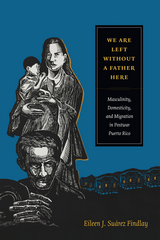
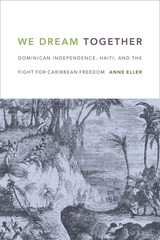
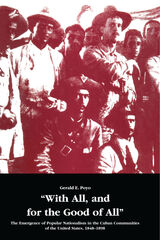
Poyo differentiates between the development of nationalist sentiment among liberal elites and popular groups and reveals how these distinct strains influenced the thought and conduct of Martí and the successful Cuban revolution of the 1890s.
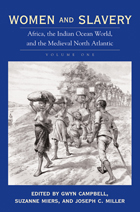
The literature on women enslaved around the world has grown rapidly in the last ten years, evidencing strong interest in the subject across a range of academic disciplines. Until Women and Slavery, no single collection has focused on female slaves who—as these two volumes reveal—probably constituted the considerable majority of those enslaved in Africa, Asia, and Europe over several millennia and who accounted for a greater proportion of the enslaved in the Americas than is customarily acknowledged.
Women enslaved in the Americas came to bear highly gendered reputations among whites—as “scheming Jezebels,” ample and devoted “mammies,” or suffering victims of white male brutality and sexual abuse—that revealed more about the psychology of enslaving than about the courage and creativity of the women enslaved. These strong images of modern New World slavery contrast with the equally expressive virtual invisibility of the women enslaved in the Old—concealed in harems, represented to meddling colonial rulers as “wives” and “nieces,” taken into African families and kin-groups in subtlely nuanced fashion.
Women and Slavery presents papers developed from an international conference organized by Gwyn Campbell.
Volume 1 Contributors
Sharifa Ahjum
Richard B. Allen
Katrin Bromber
Gwyn Campbell
Catherine Coquery-Vidrovitch
Jan-Georg Deutsch
Timothy Fernyhough
Philip J. Havik
Elizabeth Grzymala Jordan
Martin A. Klein
George Michael La Rue
Paul E. Lovejoy
Fred Morton
Richard Roberts
Kirsten A. Seaver

READERS
Browse our collection.
PUBLISHERS
See BiblioVault's publisher services.
STUDENT SERVICES
Files for college accessibility offices.
UChicago Accessibility Resources
home | accessibility | search | about | contact us
BiblioVault ® 2001 - 2024
The University of Chicago Press









